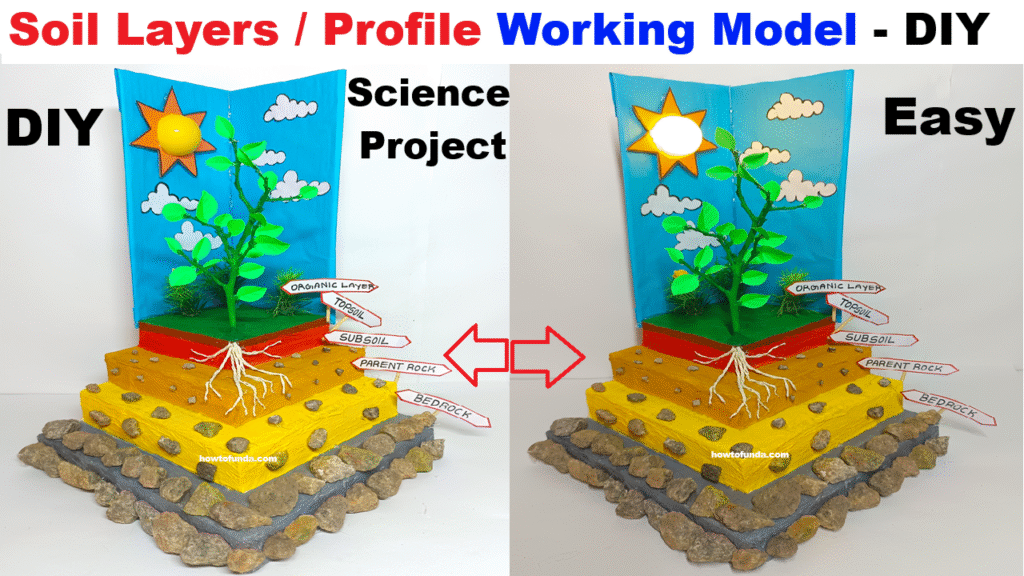A soil profile shows the different layers of soil formed over thousands of years. Each layer (called a horizon) has different composition, texture, and function:
- Topsoil: Rich in nutrients and organic matter; supports plants.
- Subsoil: Contains minerals leached from above.
- Parent material: Partially weathered rock.
- Bedrock: Solid, unweathered rock foundation.

Materials Needed:
- Cardboard box or thick sheet (base and backdrop)
- Color paper (brown, orange, yellow, gray)
- Gravels / small stones / sand / cotton
- Paint (brown, green, black, blue, yellow)
- Artificial grass, trees, and small plants (or paper-made)
- Glue gun or Fevicol
- Labels / flags for each soil layer
- Optional: Plastic worms or insects (to represent organisms)
Steps to Make the Model:
1. Prepare the Base:
- Take a vertical standing cardboard piece (like a small display board).
- Paint the background brown or neutral, or cover it with paper.
2. Create the Soil Layers (Top to Bottom):
- Topsoil (A Horizon) – Dark brown
- Use black/brown color paper, sprinkle some gravel or sand, add roots, worms, etc.
- Add artificial trees/plants on the surface.
- Subsoil (B Horizon) – Reddish brown/orange
- Use orange/red paper, paint or glue on fine gravel/sand particles.
- Parent Material (C Horizon) – Yellow/gray
- Use yellow/gray paper, glue bigger gravel/rocks to show unbroken rock pieces.
- Bedrock (R Horizon) – Hard solid layer
- Paint or glue dark gray sheet with cracks or lines for rock structure.
3. Add Details on Surface:
- Place small artificial plants and trees on the topsoil.
- Create a grass layer using green paper or artificial grass.
- Optional: Add a small water stream or animal figure on the surface.
4. Label the Layers:
Use small flag labels or printed tags to name each layer:
- Topsoil (A Horizon)
- Subsoil (B Horizon)
- Parent Material (C Horizon)
- Bedrock (R Horizon)

